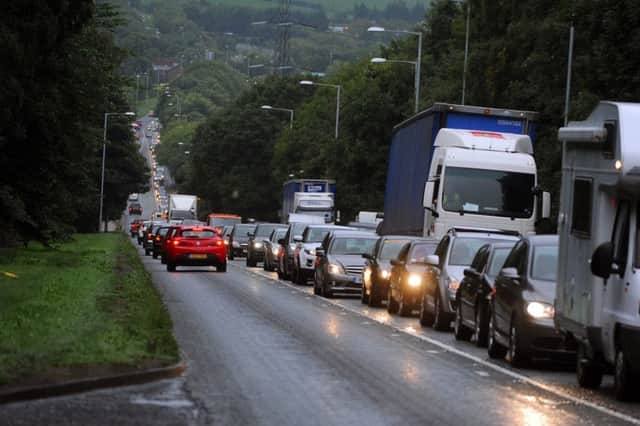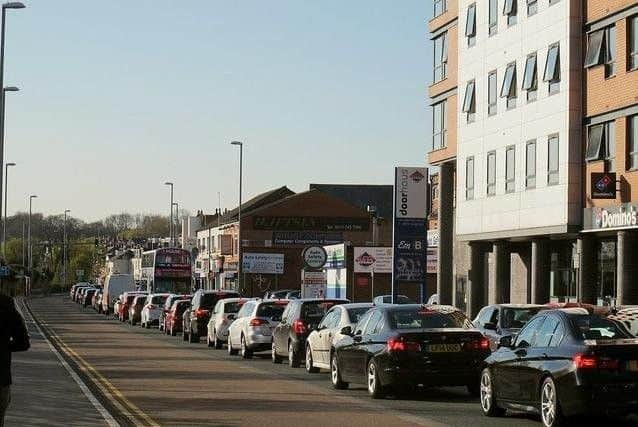Why you are 21 times more likely to be killed by air pollution than a car crash in Yorkshire: Andrew Carter


But this is only is one aspect of the environmental challenge that humanity faces. Toxic air poses a more immediate and damaging threat to our lives. Unlike climate change, which affects us all, the damage caused by air pollution is particularly in problematic in our cities and large towns.
Advertisement
Hide AdAdvertisement
Hide AdAround 40 people each day are estimated to die from long-term exposure to air pollution in the UK. In Yorkshire, more than one in 24 deaths in the county’s largest cities and towns are caused by exposure to toxic air. In Hull, this figure rises as high as one in 20 deaths being caused by pollution-induced heart and lung diseases and strokes.


To put this into some context, this means that you are 21 times more likely to be killed by the air pollution emitted from a car in Yorkshire’s cities than you are likely to be run over by one.
The levels of toxic air that we see in Yorkshire, and across much of the rest of the country, breach World Health Organisation clean air guidelines. Yet they remain entirely legal under UK law.
This is in itself shocking, but it is made worse by the fact that this is a largely the result of choices made, or not made, by us – as consumers, as citizens, and as politicians.
Advertisement
Hide AdAdvertisement
Hide AdThe vast majority of the air pollution we breath in cities and towns is man-made. For example, if we just take one of them – the deadly toxin PM2.5 – a lot of emissions come from domestic sources such as currently fashionable woodburning stoves. Less surprisingly, another significant source of pollution is cars (including electric) and other modes of transport such as aeroplanes. In fact, we see big spikes in deaths related to PM2.5 in cities close to airports like Luton and Crawley.
Now some good news: because the vast majority of air pollution-related deaths are caused by us, we have the power to reduce them. But this will require political will. Understandably, Westminster has been caught in the firm grasp of Brexit for the past three years. But with a majority Government promising a bold new agenda, taking brave decisions to cut down on air pollution must form part of their vision.
Councils must get serious about cutting down on private car use; they are a huge contributor to both toxic air and traffic congestion. As a first step, politicians in Leeds and Bradford should use the powers they already have to introduce Clean Air Zones which charge all polluting vehicles for driving in their city centres.
Advertisement
Hide AdAdvertisement
Hide AdThe introduction of Clean Air Zones should be accompanied by improvements to public transport. Leeds remains the largest city in Europe without its own metro system and public transport across cities and towns in the rest of Yorkshire remains unreliable and expensive. No wonder people drive.
The Government has pledged to ‘level up’ the country through infrastructure investment and Dan Jarvis, the newly empowered Mayor of the Sheffield City Region, has promised better transport between and within Sheffield, Rotherham, Barnsley and Doncaster. Making good on these statements is essential if we are to clean up the air in Yorkshire’s largest cities and towns.
The Government also needs to get serious about its pledge to clean up our toxic air. It has already created a £220 million Clean Air Fund. This sounds a lot, but it’s not enough. In the Budget it should be tripled and targeted at the cities and towns with the biggest air pollution problems. The Government should also enshrine the World Health Organisation’s guidelines on deadly PM2.5 toxins into law. Pollution knows no borders, and a significant portion of the UK’s toxic air is blown over from continental Europe. So, it is particularly ironic that the need to work closely with our European neighbours to secure a cross-border solution will be critical to tackling our domestic air pollution just as we prepare to leave the European Union on Friday. Some form of cooperation between Britain and the rest of Europe to reduce air pollution will need to be a central component of any future relationship.
I know that I have offered up some difficult pills for people to swallow here. Taxing drivers and cracking down on fashionable woodburning stoves may be unpopular with some. But consider the alternatives: more avoidable deaths from, cancers, lung diseases and strokes. A failure to act now wouldn’t just be complacent, it would be deadly.
Andrew Carter is chief executive of Centre for Cities.